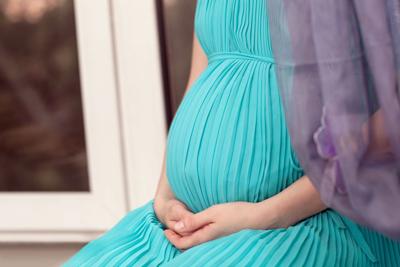SPRINGFIELD, Ill. (WAND) - The latest Illinois Maternal Mortality Data report has been released by the Illinois Department of Public Health.
The report analyzes data regarding deaths that occurred during pregnancy or within one year of pregnancy from 2021- 2022.
IDPH convenes two Maternal Mortality Review Committees to identify causes of death and determine whether a death was pregnancy-related. The committees also assess preventability, identify contributing factors, and develop recommendations to help prevent future deaths.
Findings showed during 2021–2022, an average of 110 women in Illinois died each year during pregnancy or within one year after pregnancy, with slightly more deaths in 2021 than in 2022. About half of these pregnancy-associated deaths (43%) were determined to be pregnancy-related.
Overall, pregnancy-related mortality increased during this time compared with previous reporting cycles, and MMRCs determined that 91% of pregnancy-related deaths during this period were potentially preventable.
The report states that Black women were more than twice as likely to die from pregnancy-related conditions and three times as likely to die from pregnancy-related medical complications compared with White women.
Chicago and other urban counties experienced the highest pregnancy-related mortality.
Substance use disorder was the leading cause of pregnancy-related death, followed by thrombotic embolism, COVID-19, and hemorrhage.
About one-third of pregnancy-related deaths occurred more than 60 days postpartum.
“Behind every data point in this report is a life lost, and far too often, it’s a Black woman or someone living in an underserved community,” said IDPH Director Dr. Sameer Vohra. “These disparities are unacceptable and as the data show, largely preventable. The Governor's Birth Equity Blueprint and the investments being made are designed to address these disparities, ensuring that our next steps include coordinated action, shared accountability, and deep community partnership. We are working to build an Illinois where everyone has a safe and healthy pregnancy, birth, and postpartum experience.”
Earlier this year, Gov. Pritzker unveiled his Birth Equity Blueprint to improve maternal care and birth outcomes in Illinois. The blueprint represents a multi-agency initiative across the Governor’s Office, Lieutenant Governor’s Office, Illinois Department of Public Health, Illinois Department of Human Services, Illinois Department of Healthcare and Family Services, and more. The blueprint provides four strategic goals:
- Expand Investments in Health Quality and Provider Support
- Promote Access to Birthing and Specialty Care Services
- Establish Universal Risk Assessment, Referral, and Care Coordination Framework
- Develop Shared Measurement and Accountability Framework for Maternal Health and Birth Equity
Top Stories:
Copyright 2025. WAND TV. All rights reserved.











